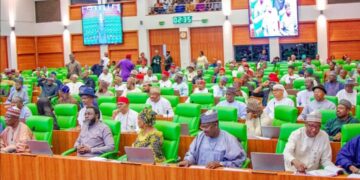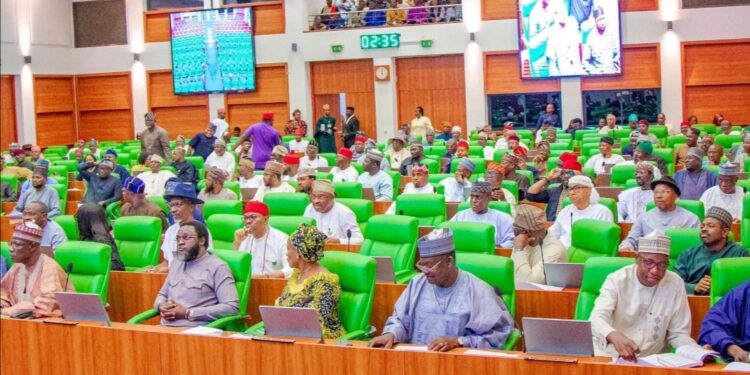By Enyichukwu Enemanna
Nigeria’s House of Representatives has passed a resolution to investigate the mass sack of workers in the Central Bank of Nigeria (CBN), which a parliamentarian said was done “without fair hearing”.
“Worried that this retrenchment without any fair hearing in the last few years or panels or criteria spelt out could cause the nation a lot in settlement”, member of the House, Jonathan Gaza from Nasarawa North Central said after a motion was passed at an emergency session on Wednesday to commemorate 25 years of Nigeria’s unbroken democracy since May 1999.
“Terminating appointments arbitrarily will amount to killing the morale of junior staff not knowing what their fate would be”.
Heritage Times HT reports that a member of the Senate, Ned Nwoko representing Delta North had earlier criticised the sack of 317 workers of the Central Bank, urging the Senate to launch an investigation.
“The Senate should mandate its committees on Employment, Labour and Productivity, as well as that of Public Service Matters, to investigate the terminations”, he demanded.
READ ALSO: Kenyan Govt Delivers On Sh10,000 Aid To 25,000 Displaced Households
This is not the first time the Central Bank under the governor, Olayemi Cardoso is retrenching staff since he assumed office last year.
In April, no fewer than 117 staff of the apex bank were disengaged from across its 29 departments as the organisation claims to restructure to shift away from the development finance role.
After the motion was passed the same day President Bola Tinubu made with a joint session of the National Assembly for the launch of the new national anthem, House mandated the Committee on Banking Regulations to look into the reforms of the apex bank that warranted the CBN to downsize its staff strength.
Cardoso had also in January moved some departments of the apex bank from Abuja to Lagos, citing efforts to increase operational efficiency and reduce operating costs.
Recruitment into Nigeria’s central bank is mostly shrouded in secrecy and hardly publicized in the media space for inclusive participation.
Activists and civil society organizations have alleged that employment slots into the A-list agency is usually hijacked by politically exposed persons who can lobby their way to secure slots.



































